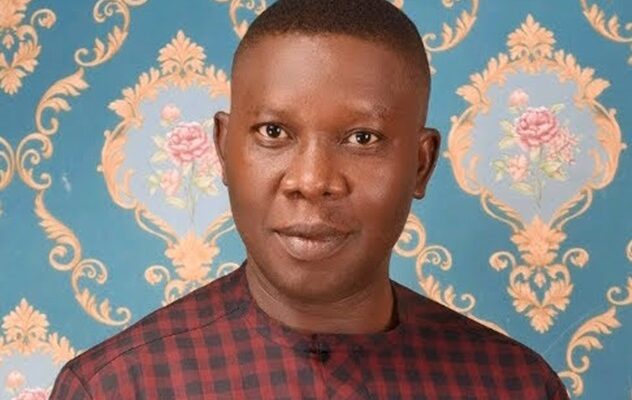Nigeria is a mono economy. A fall in the price of petroleum in the international market will always have a monumental effect on the economy.
Cultural festivals are organized events, or series of events, that celebrates and showcases a specific cultures traditions, customs, and arts. These festivals can include music, dance, food, and other cultural expressions, serving to educate and engage both locals and visitors.
MAJOR CULTURAL FESTIVALS IN IGALA LAND.
Festivals in igala land are celebrated annually to commune with the ancestors (ebegwu) who watch over the destinies of the entire igala people.
These festivals are:
EGWU FESTIVAL
EGWU signifies two things in igala land, first it means masquerade and Secondly, it means the dead, connoting the ancestors. In igala land they believe that their masquerades are their dead ancestors appearing to them on special occasions to interact and communicate with them.
Egwu festival therefore is the celebration in memory of the departed adults of igala society and since the ancestors are so central in Igala religious phenomenon, the regard the Egwu festival as one of the most important of all the annual festivals. It last for nine days marked by five days of essential ritual activity and four days of eating, drinking and merry – making. The first day of the programmed is the most important; this being the day the Attah personally offers sacrifices to his nine ancestors. The Attah will offer nine goats to the spirits of the nine past Attahs.
On the second day, the Attah offer morsels of pounded yam, drops of locally brewed beer and kolanuts each to the remembered Attah. On the third day the blood of the sacrificed animals is poured neatly unto the upper part of each of the okwute and prayers are offered accordingly. On the fourth day, each of the late Attah will be invoked by name and requested to look after the welfare of the present Attah and his subjects.
On the fifth day, the people assemble at ere ane, where the Atebo palace priest relays the Attah’s message to the people on behalf of the Attah. This is concluded by a visit by members of the royal lineage to the Attah’s palace early in the morning. After that, they will retire to their homes to continue the merry making, eating and drinking for the next four days.
OCHO FESTIVAL
This is the second most important annual festival in igala land. It is celebrated yearly to honour the spirits of the brave and courageous ancestors. The antecedents of the igala kingdom, is triggered off when the Attah offers sacrifices to the royal protective cult situated at obande in a shrine enclosed in the palace walls, which is a powerful spirit that has the attributes of good and evil but which can protect its owner from the harm of other malevolent spirits. From the vicinity of the Abe ocho are organized in hunting bands, led appointed experienced hunters.
The Attah is the leader of the hunting bands and symbolically goes out into an enclosure to return later to the arena with game purportedly killed in a hunt. The war dress that he puts on points to the military dimension of the ocho festival.
Apart from the clothing and medicine wrapped up in various styles that the Attah puts on, he also holds a spear and an iron staff decorated zoomorphically, mainly with wild carnivorous animals, depicting strength and his ability to kill the enemy successfully.
One of the major events on the ocho programmer is the search of the royal masquerades, in this activity, the masquerades are each kept at hiding places and search parties go out to find them in their hierarchical turn.
Also, during the festival visiting hunters and the hunter on duty during the ocho festival are to rid the land of all witches and all malevolent spirits before the commencement of the festival. Each of these masquerades go to pay homage to the Attah, but before then, each is obliged to go first to ekwe to pay him homage and offatory dues in the form of four kola nuts obi-igala (four-lobed), before they can participate in the ocho festival. The use of masquerades in the ocho festival is suggestive of the presence of the ancestors during the festival. Also, masquerades have the power and ability to see and deal with evil spirits that may be on the way.
OGANI FESTIVAL
Ogani is another festival celebrated at Akpa in honour of the victory of the first Onu of Ankpa over the reactionary forces in the area in the 17th century. The festival is celebrated before the month of id-el-maulud (a moslem festival) after consultation with the oracles by the priest. After consultation of the oracles by the priest, the announcement of the festival follows and later on, the men folk drawn from the clans to form the masquerade group assemble at midnight for ritual cleansing at the outskirts of the town.
The cleansing ritual include ritual bath, decorating the body with coloured pigments, white chalk produced locally, before wearing the masquerade regalia. The masquerade regalia includes pieces of cloth strips of various colours tied round the waist beneath which are raffia waist bands tied on top of the skirt.
On sighting the masquerades, musicians armed with gongs, flutes, horns and drums set on to play the instruments amidst songs and praises until the masquerades arrive at the town Square, the musicians are dressed in red, blue and white, that is, the males wear trousers made of blue fabric, white shirts or jumpers, while the female singers wear red skirts on white blouses. The singing and playing of the musical instruments continue while the masquerades display the swing dance for sometime and food is served to the elders at ere anebo. This lasts for some hours before they move to the various sections of the town to perform. In the evening, the ogani masquerades move towards the palace to perform the swing dance while the women dressed in gowns march round the Onu’s palace seven times reciting prayers, incantations and invoking the ancestral spirits for blessings to the land and the people. After the prayers, the masquerades and the women dance and sing for hours in front of the palace as a symbol of respect for the Onu.
Finally, the Onu addresses the entire people in the town and give some words of advice to all and sundry which marks the end of the festival for that year.
EGBE FESTIVAL
This festival at Egume is sacredly treated with a little bit of secrecy. It is believed that the dead or spirits of the dead were seen openly at night. The ceremony is celebrated in memory of the dead Onu meaning that it is a burial festival. Egbe festival is announced when the Onu of Egume joins his ancestors and another person is appointed to take charge of the affairs of the town. Five days to the time of the festival the corpse is carried from the palace and cleansed before it is placed in the grave.
On the day the Onu is to be buried, some four very strong and long locust bean trees are usually placed on the floor of the grave, then the coffin is placed on them before the grave is leveled up.
OKWULA FESTIVAL
This festival is is a time set to celebrate the communion between lineage members, their consanguineal and affinal kins as well as friends and the dead members of the lineage. It is also known as the time of serious business with members when their dead, known or unknown to the living, good or bad, are reviewed by the talking masquerades.
On this day, offerings of clocks are made collectively and individually followed a communal meal in which all the men of the community, collected agnatic relatives and friends take part. In the evening of the okwula festival, the Egwu afia masquerade representing the dead ancestors are brought out from the grave and in procession to the Atakpa of the founder of the community or the eldest lineage ogijo-olopu in order of seniority with the eldest masquerades following behind. The masquerades spend one or more nights at the Atakpa of the founder of the community and speak to the members of the group through the Egwu for another year, marking the the end of the festival.
– Amaga, Sunday A.
National Museum
08037091034.




